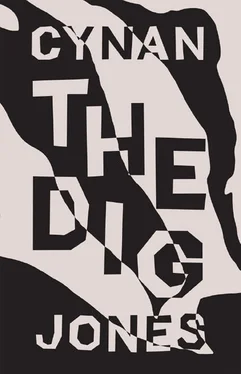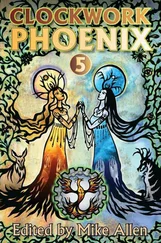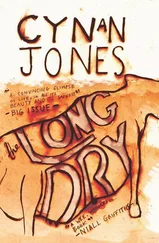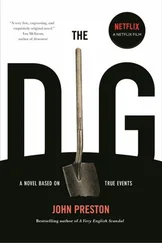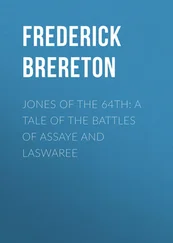He finds the back legs, cups the sharp hoof in his palm as he folds each back and draws it somewhat from the ewe; the throb, power of pelvic girdle and birth muscles chew his arm. And then he draws the lamb in one smooth strong stroke, and slaps and rakes its wet mosslike fur to make it breathe, feels the power of its fast heartbeat in the chicken-bone cage of its ribs, still wet in his hands from the grease of birth, all these things of life, from jissom to mucus slavered between thighs to the wet sack of birth and glistening oiled newborn thing — all of these things of life awatered.
He looks about himself, trapped between the trough and hurdle, sees the plywood starling be-shitted at the stop-end of the trough, the immediacy of the smell of hay, which in his mind can only smell of hay for he has no reference to any other thing. He is almost crazily tired, craves her help, for some company here mainly, to help the effort on. But this is now the rhythm, the way the shifts will work. He feels as if his body runs only on the air in it, but he knows, feeling even as he is, a feeling of strength — of a reserve of strength; like he could give more, whether tired or not, that this thing is of purpose utmost.
He lets the mother clean the lamb, tea-dipped on birth and tannin colored, and as she nibbles at the covering bag he works the fat clotted cream globule of first plug from her stiff and giving teat, this vital colostrum come.
He leans from the ewe, stares down and there sees a head of barleycorn, vertebral and desiccated amongst the straw like a skeleton in a bird pellet.
He rests on his knees like that, a man ancient in some aspect of prayer. He feels oaken and finds once more vapors of energy with which to lift him and, somehow, dazed, he gets to his feet once more, goes about the work, the brief rain passed, outside the sucking and clapping of the cattle feeding in the lights.
For a while he stays and watches the Beulah get to its feet. It is straight up, its instinct to live, head held high quickly, its gray-and-black-spattered coat in still loose rolls; it is vital with instant curiosity, an interest in air, even in its own feet.
He bends and drinks from the tap, can taste the plastic of the pipes that bring the water in, hears even in her absence the rebuff, how she brought refilled bottles of fresh water to the shed, albeit from the same supply, from their kitchen tap.
He thinks of her sleeping now, the rest she needs, thinks of the warmth of her body, the nest-like thing she could be to his tiredness. Then he notes the new lamb in the book, writes in the backward presentation, flicks back and traces his hand across her writing, looks up to the tub of dropper bottles and sprays he does not understand, that are her domain, like the movement records, and the paperwork, all the more careful aspects of the farm.
He watches the Beulah on its feet, its interest in the air, and watches it take its first few steps.
He stood and looked out, understood the strange ventriloquy of sounds that disturbed his land; how a barking fox could sound as if it were right the other side of the farm, how in this prehensile night there could come the illusion of the sea nearby. He listened to that, still as it seemed: the wind coming over the trees then dropping through the hedges and over the fields with the distant noise of waves breaking and running. And such was its likeness that he could not be sure this wasn’t the sound of the shifting tides carried from the coast that was dropped away out of sight a few miles off.
He looked up at the bare ash branches, mercurial and somehow elephantine, rising out through the low floodlights and they hardly stirred, making the sound seem very far away. A distant white noise. A noise bearing some primitive hushed whisper of the permanence of vast things.
The sound seemed tangible in the air, and everything felt silent before it. The sheep sighed and crunched, the cattle’s feet slapped as they moved in the mud. The dog chain rattled like coins in some dark pocket. But this sound brought stillness.
As he looked out in the pitch dark beyond, a barn owl came into the floodlight, glid silently between the barns and was gone, seeming to leave some ghost of itself, some measureless whiteness in the air.
He went into the boot shed and clicked the light and took off the old jacket, patched with blood and vital fluid, the inner arms birthmarked with shit, floured with grassdust that stuck to the lanolin which through all the embraces had enoiled the coat. He took off the hat. He lifted down the waterproofs over the top of his boots and stepped out of the boots on to the cold concrete floor and pulled his trousers out of his socks. For the brief second he stood balanced on one leg he knew he was stupefyingly tired. Even this small act was almost too much.
He lifted the boots out of the doorway and set them next to hers. His boots looked protective somehow. Her boots and trousers looked smaller next to his, the two pairs like an adult crossing the road with a kid.
He stepped into his shoes without putting them on properly and went to the house. The backs of the shoes were so long crushed that they had molded by now to his heels.
For most of their life the shoes had gone only the ten yards or so from the porch to the boot shed, or perhaps now and then to the log store a little way beyond. The uppers were unscathed and the soles were hardly worn but the backs of the shoes were crushed into a rag. At first they looked comfortable and loved, but actually they had the unfulfilled imbalance of things that had not been used to their fullness. The one part constantly abused had given up and, while the rest of the shoes held up, the wear of doing just one repeated thing had made them useless for any greater purpose.
He felt the doorjamb under his hand and rubbed the worn wood there as he kicked his shoes off. He had long had this need to put his hand upon things — to feel them, as if they were points of reference. The doorjamb, the rough stone on the corner of the porch, the old slate windowsill on the way out to the sheds.
He felt again the way the jamb had worn under his hand, and thought of her. He wondered if there were parts of her like that.
He put the torch on to charge and went into the house.
He looked at the clock. He seemed to notice for the first time it had Roman numerals, though he understood he must have known this. But for a while it fascinated and disturbed him, his new registry of this.
He put on the kettle. He leant against the kitchen unit holding the old beige mug in his hand. He had a sudden strange sense of time — not as a thing you live within, but as an element you grow alien to when you become aware of it, the way you lose the sense of your body being yours when you look too long in a mirror.
I’ll give it four hours, he thought, attritionally.
He undressed quietly. He could see where she slept, knew she was unwakeable now. For a long while he had sat at the table holding the tea and when he had finally gone to drink it, it had gone cold.
There was just the light from the landing coming in and in the dark he could almost trace the outline of her in the bed.
The scent of her was in the room and it almost choked him to understand how vital to him this was; how he could never understand her need for his own smell, could not even understand how she could find it on him under the animal smells, the carbolic, the tractor oil and bales and all the things he could pick out on his own hands. He had this idea of smells layering themselves over him, like paint on a stone wall, and again he had this sense of extraordinary resilient tiredness. He wondered what isolated, essential smell she found on him, knew the mammalian power of this from the way pups would stumble blindly to their mother’s teat, the way a ewe would butt a lamb that wasn’t hers. In the shock of birthing, all that first recognition would be in that smell. They would take the skin sometimes of a dead lamb and tie it on an orphan like a coat in the hope that the mother who had lost her lamb would accept and raise it as her own.
Читать дальше
